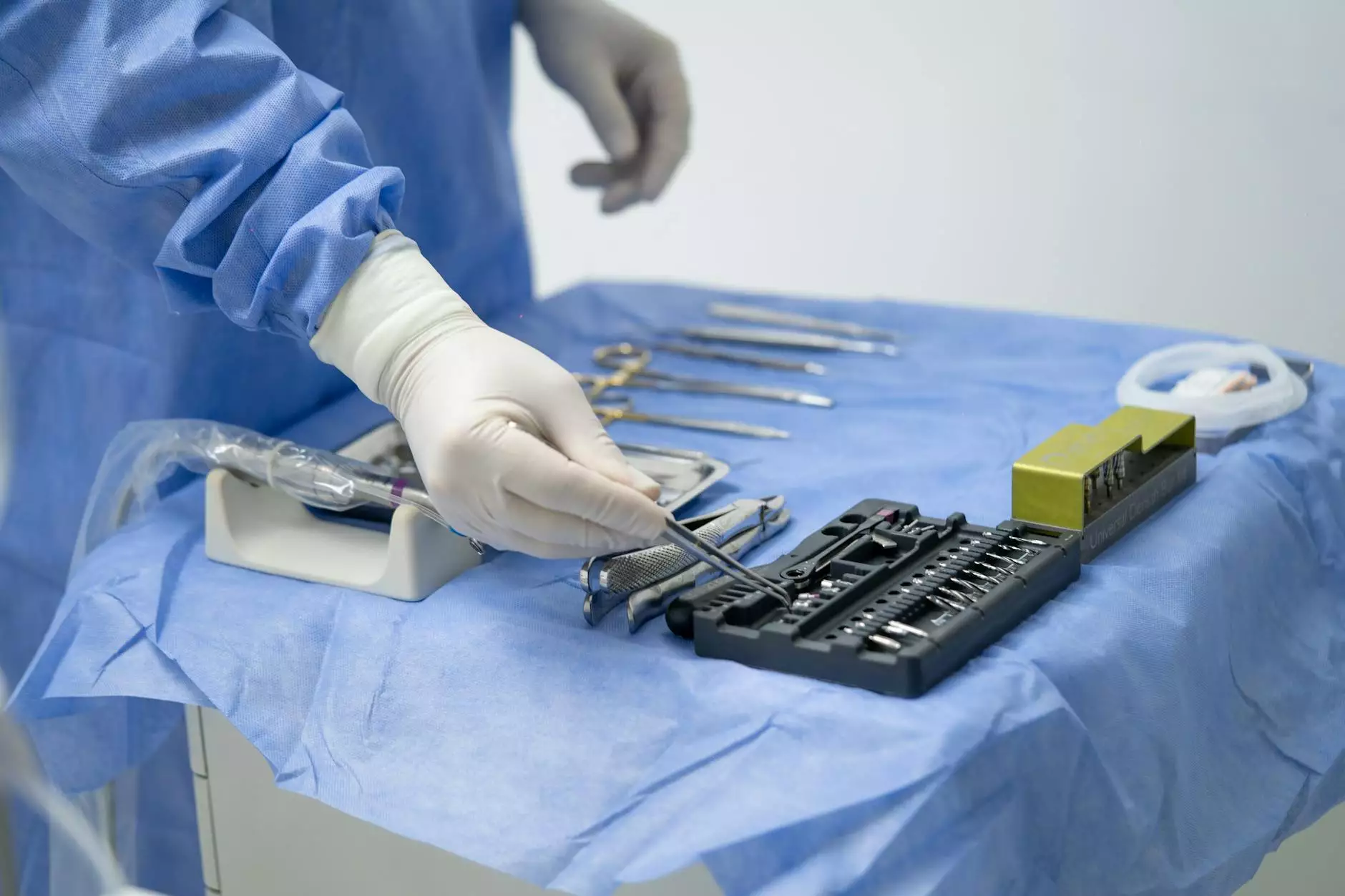Understanding Gastric Bypass: A Comprehensive Guide to Weight Loss Surgery

In the realm of health and medical solutions, the topic of gastric bypass surgery is increasingly capturing attention. This surgical procedure, designed for those struggling with obesity, serves as a beacon of hope for many individuals seeking sustainable weight loss and improved health outcomes. This article delves into the intricacies of gastric bypass, exploring its procedures, benefits, post-operative care, and lifestyle adjustments that accompany it. Whether you are considering this surgery or just curious about its implications, you will find valuable insights packed into this guide.
What is Gastric Bypass?
Gastric bypass is a type of weight loss surgery that involves altering the digestive system to help individuals achieve significant weight loss. It primarily involves two main components: creating a small pouch from the stomach and rerouting the small intestine. This process decreases the amount of food the stomach can hold and alters nutrient absorption, leading to weight loss.
How Gastric Bypass Works
The procedure typically involves the following steps:
- Creation of a Small Stomach Pouch: The surgeon divides the stomach into two sections, creating a small upper pouch that holds food and a larger lower pouch that remains untouched.
- Re-routing the Small Intestine: The small intestine is cut and then reattached to the small pouch, allowing food to bypass the majority of the stomach and the upper part of the small intestine.
- Reduction in Caloric Intake: Since the new stomach pouch is smaller, patients feel full faster, which drastically reduces their food intake.
Who is a Candidate for Gastric Bypass?
Candidates for gastric bypass surgery typically include individuals who meet certain criteria:
- Body Mass Index (BMI): Patients with a BMI of 40 or higher, or those with a BMI of 35 or higher who also have obesity-related health conditions.
- Previous Weight Loss Efforts: Individuals who have attempted significant weight loss through diet and exercise without success.
- Commitment to Lifestyle Change: Candidates must be willing to adhere to a lifelong commitment to dietary changes and regular physical activity.
Benefits of Gastric Bypass
The benefits of undergoing gastric bypass surgery extend beyond mere weight loss. They include:
Significant Weight Loss
Patients can expect to lose 60-80% of their excess weight within 12-18 months post-surgery, leading to improved health and a higher quality of life.
Improved Health Conditions
Many individuals experience resolution or improvement in obesity-related conditions such as:
- Type 2 Diabetes: Significant improvement or complete resolution of diabetes symptoms.
- Hypertension: Lowered blood pressure and reduced dependency on medications.
- Sleep Apnea: Alleviation of symptoms and better sleep quality.
Enhanced Quality of Life
With weight loss comes increased mobility, self-esteem, and overall life satisfaction. Many patients report feeling more confident and able to engage in activities they previously found challenging.
Gastric Bypass Procedure: What to Expect
The gastric bypass procedure is performed under general anesthesia and typically takes about 2-4 hours. Here’s what you can expect:
Pre-operative Preparation
- Medical Evaluation: Thorough medical assessment to ensure the patient is fit for surgery.
- Diet Changes: Patients often need to follow a special diet for a few weeks leading up to the surgery.
- Support Groups: Engaging in support groups to better understand the journey ahead.
The Surgery Day
On the day of the procedure, patients will be prepped and taken to the operating room, where the surgeon will perform the gastric bypass. Post-surgery, patients are typically transferred to a recovery room for observation.
Post-operative Care and Recovery
Recovery from gastric bypass surgery involves several key elements:
Lifestyle Changes
- Dietary Modifications: Adopting a healthy eating plan that includes small portion sizes and nutrient-rich foods.
- Regular Exercise: Establishing a routine that incorporates cardiovascular and strength training activities.
- Hydration: Ensuring adequate fluid intake, as a larger intake of fluids can lead to discomfort post-surgery.
Follow-Up Care
Regular follow-ups with the healthcare provider are crucial to monitor health and progress. Nutritional counseling and possibly vitamin supplementation may be necessary to prevent deficiencies.
Potential Risks and Complications
While gastric bypass has numerous benefits, it is essential to be aware of the potential risks:
- Surgical Risks: As with any surgery, risks include infection, bleeding, and complications from anesthesia.
- Long-term Complications: There may be issues such as bowel obstructions, hernias, or nutritional deficiencies.
- Dumping Syndrome: A common side effect, causing nausea, vomiting, or diarrhea after consuming high-sugar or high-fat foods.
Success Stories: Transformations Beyond Weight Loss
Numerous individuals have undergone gastric bypass with remarkable success. These personal stories highlight transformations that go beyond just shedding pounds, but also encompass:
Emotional and Mental Health Improvements
Patients frequently report increased confidence, reduced anxiety, and a renewed zest for life. Engaging socially becomes easier, and many individuals who once struggled feel empowered to thrive in their personal and professional lives.
Success in Professional Life
Many gastric bypass patients find that their newfound energy and confidence translate into professional success. This may result in promotions, career shifts, or even pursuing long-held dreams that seemed impossible before.
Conclusion: Is Gastric Bypass Right for You?
In summary, gastric bypass is a life-changing surgery that provides significant weight loss and improved health conditions for individuals struggling with obesity. When considering this procedure, one must weigh the benefits against potential risks and lifestyle changes. Engaging in thorough discussions with healthcare professionals and seeking support from those who have experienced the surgery can greatly enhance the decision-making process.
If you’re contemplating gastric bypass, take heart. Many individuals have successfully transformed their lives through this procedure, and the journey to health and happiness is within reach. Remember, it’s not just about the weight loss; it’s about gaining a healthier and more fulfilling life.
For more information on gastric bypass and other health-related services, visit antalyahealth.com, where expert advice and support await you.









